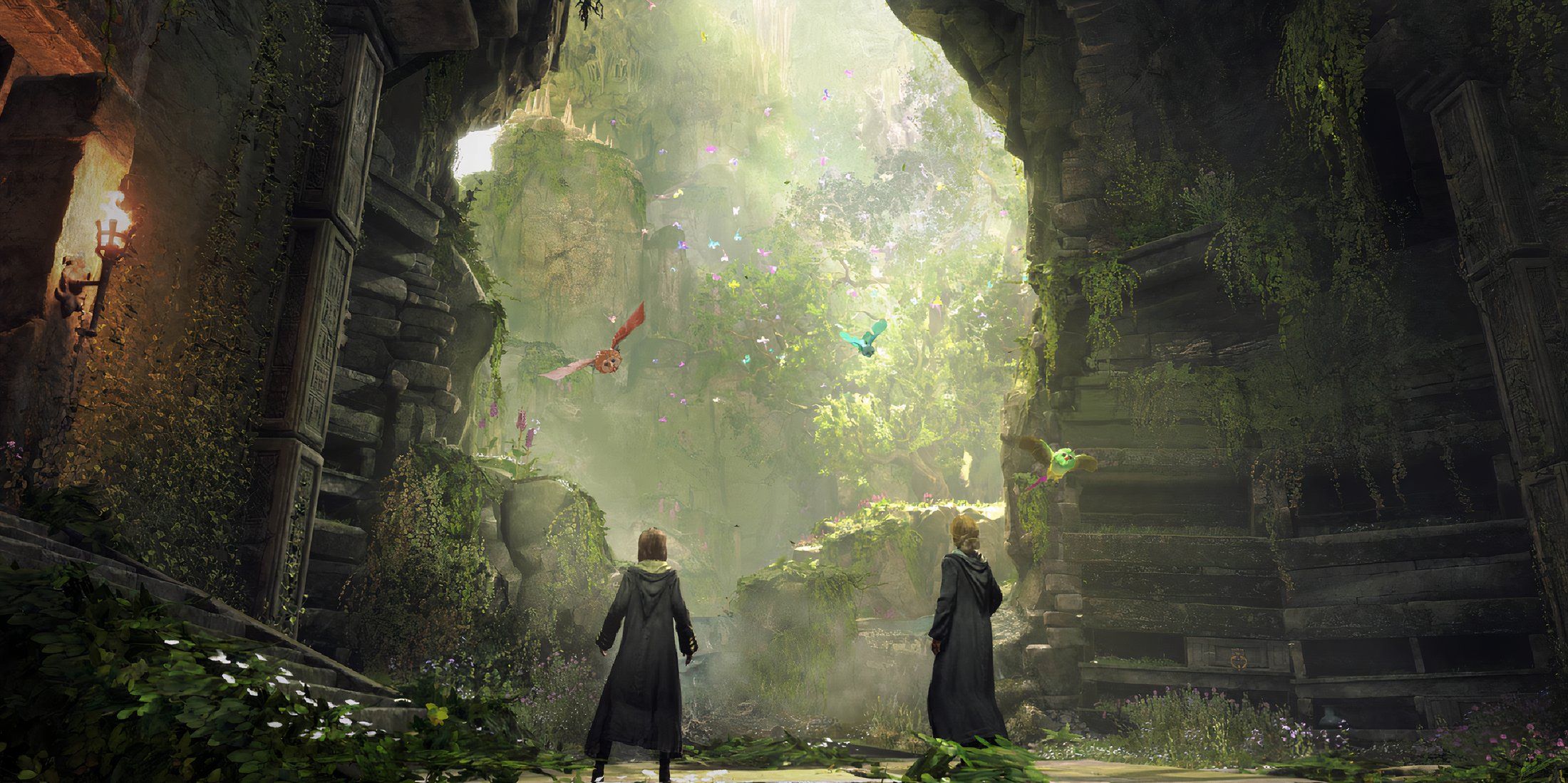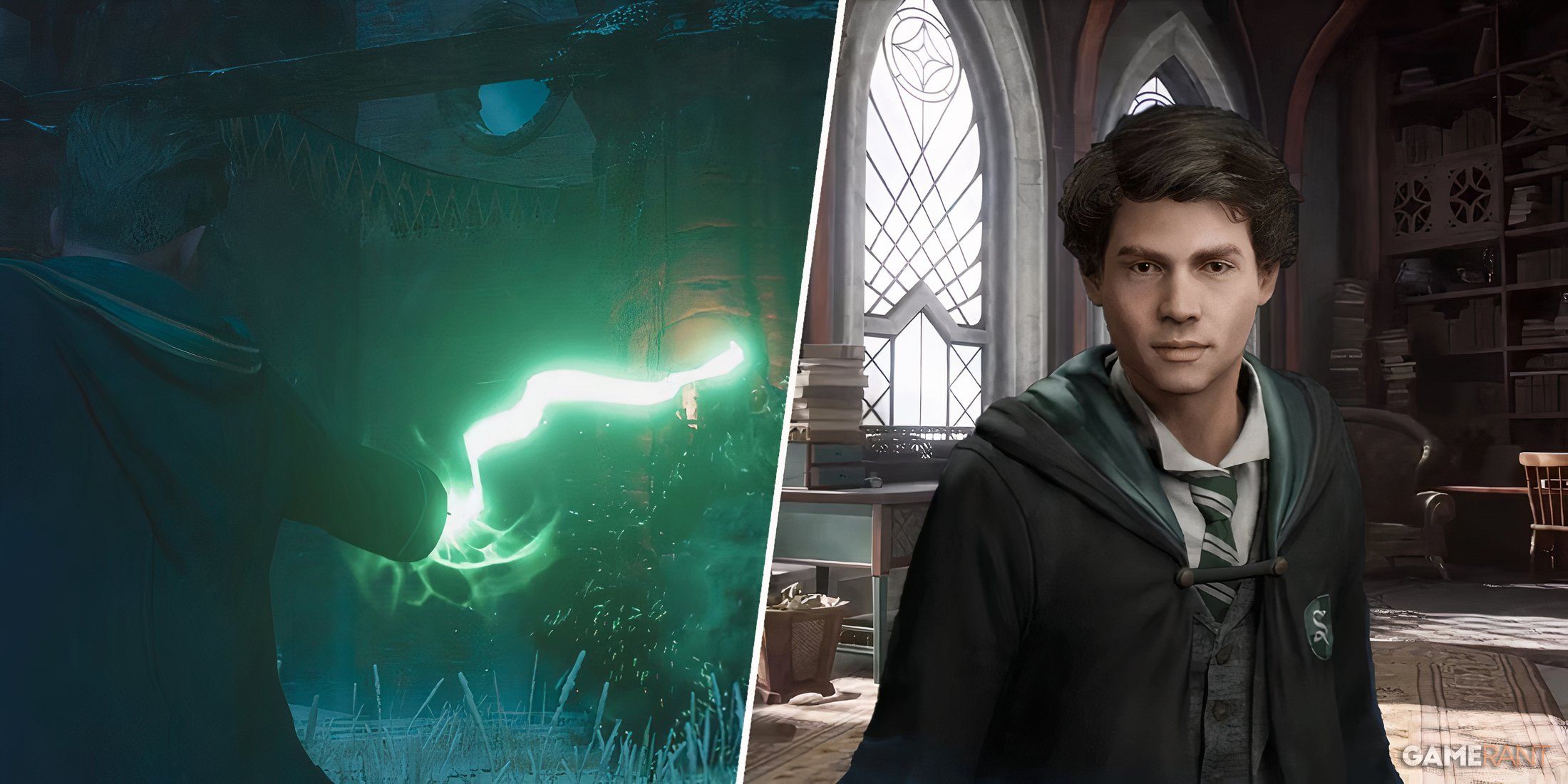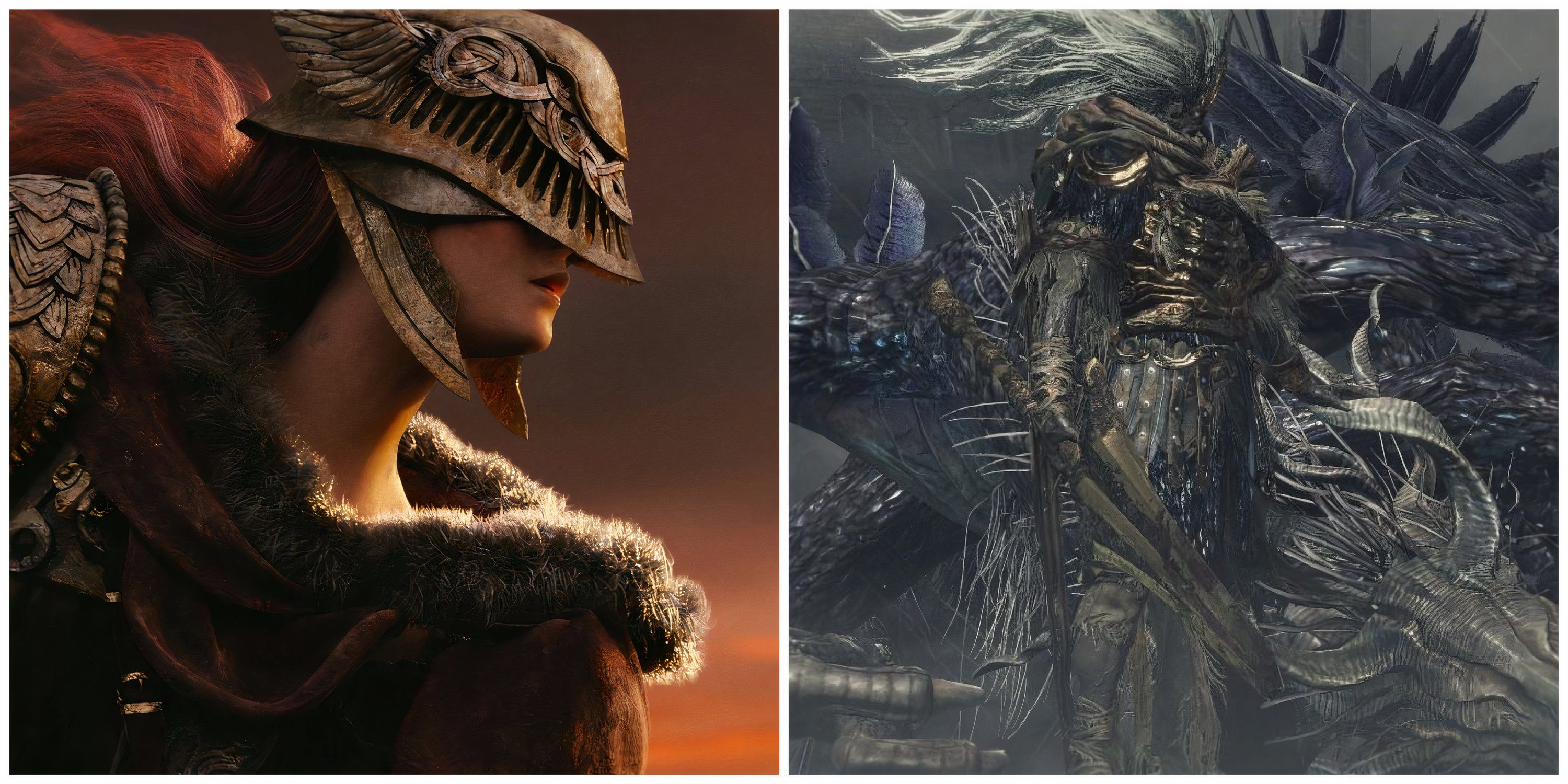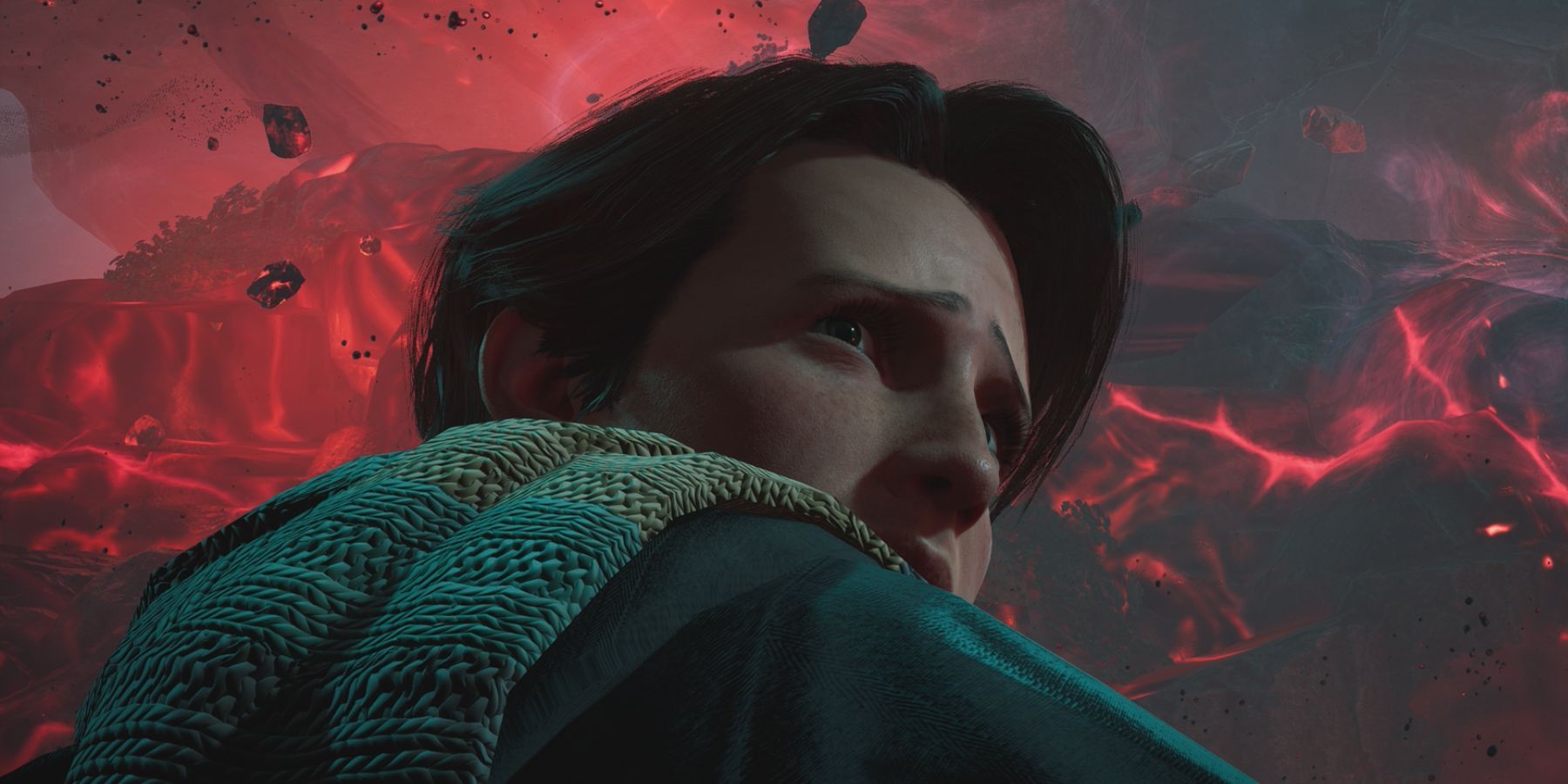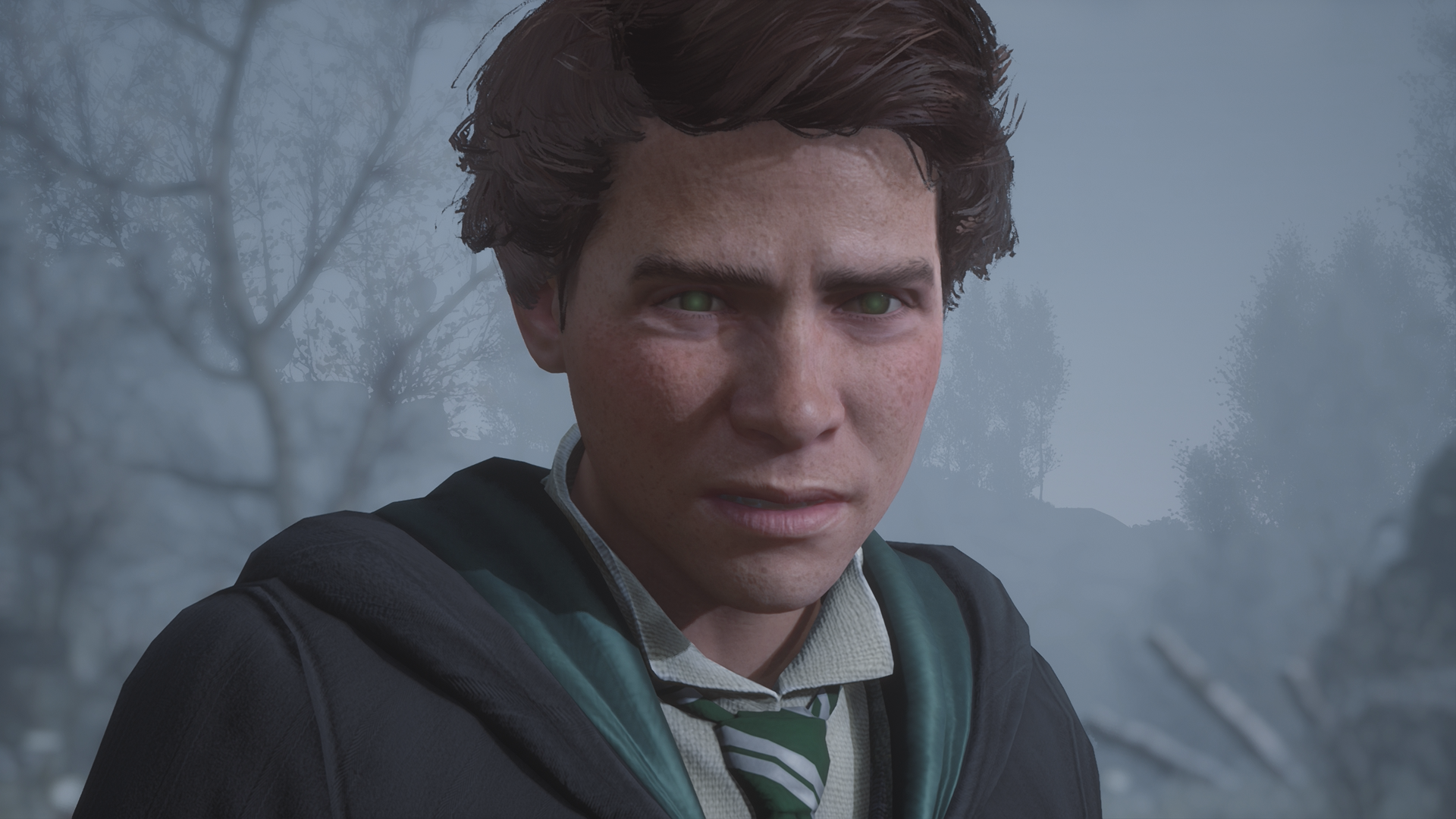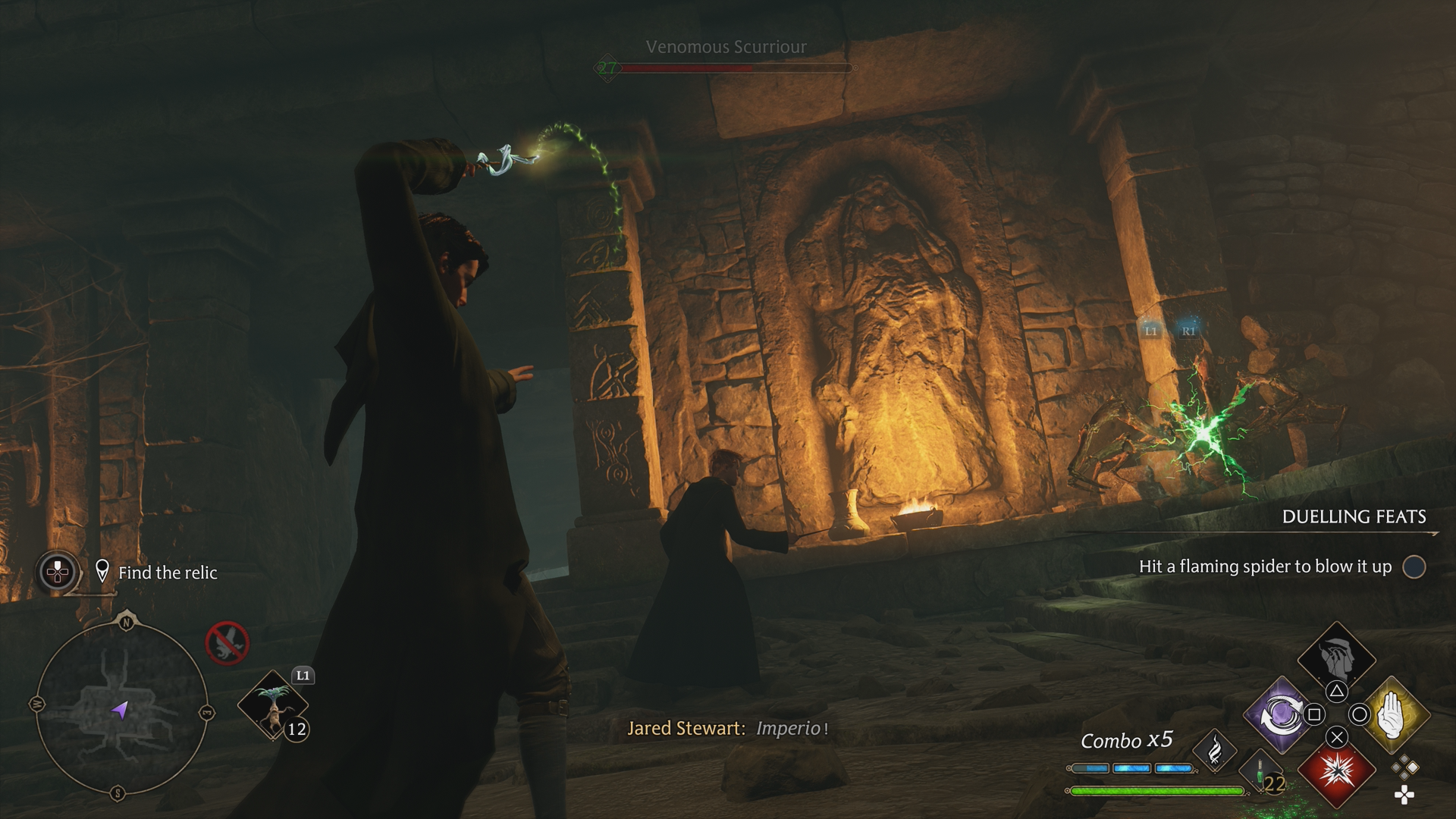WARNING: Major Spoilers for Hogwarts Legacy Ahead, Proceed At Your Own Risk
Because of the emphasis that Hogwarts Legacy had seemed to place on Unforgivable Curses and the dialogue options revolving around them, it was assumed that choices such as these would have a lasting impact on the narrative somehow. Many took the inclusion of Unforgivable Curses to the worst-case scenario possible, assuming that fellow students could be coerced, tortured, or outright killed once these curses are learned. Players do not get a chance to maim or kill other students regardless, but without a rigid morality system, it would feel inconsequential narratively anyhow.
How this could have affected the narrative if possible is exciting to consider, though choices made in Hogwarts Legacy rarely ever have a significant effect on its narrative. Slytherin’s Sebastian Sallow will fall down the same dark path no matter what players say to him, for example, but it is possible to miss out on Unforgivable Curses depending on what players say to him. Therefore, if a sequel introduced a legitimate morality system, the player’s choices might actually have an impact on the surrounding story.
Hogwarts Legacy’s Narrative is Relatively Scripted Despite Dialogue Options
If players do not go into Hogwarts Legacy knowing that it has no morality system, it would likely be surprising to learn that dialogue options have no effect on the narrative. Some dialogue options will affect gameplay, such as whether players will accept the ability to learn Unforgivable Curses as they are presented, but Hogwarts Legacy’s overarching narrative is wholly unaffected.
Navigating Salazar Slytherin’s scriptorium and speaking with Ominis Gaunt are two examples of how Hogwarts Legacy is successful at making the player uneasy about the decision to learn and cast the Unforgivable Curses, but indeed there is no morality system and no damning repercussions if players do.
Ominis and Sebastian both attempt to tug on the player’s morality from opposing ends, but Sebastian’s actions will not be affected regardless of what players choose. Players have the choice whether to learn Unforgivable Curses or not, which lends credence to the theory that a morality system was once in place or strongly considered.
But because learning and casting Unforgivable Curses in Hogwarts Legacy have no effect on the game whatsoever, there is no moral high ground for players who choose not to. Instead, they simply miss out on three unique spells that can be powerful in certain circumstances—until the end of the game, anyway. Either way, players can feel free to cast Unforgivable Curses, and there is catharsis in knowing that Hogwarts Legacy’s gameplay options are not punitive.
A Morality System Would Reinforce Choices in a Hogwarts Legacy Sequel
There are choices players make in certain dialogue branches that have weight to them, where divisive answers will typically be received with wary contention from an NPC and the choice for the player to change their mind. Hogwarts Legacy’s multiple endings are only separated by brief cutscene alterations that once again have no effect on the narrative at large, for example, with Professor Weasley discussing the end-of-year OWLs and field guide progression regardless of which ending cutscene players receive.
Players can change minor narrative occurrences, such as what happens to Sebastian at the end of Hogwarts Legacy, but these choices have no impact on the narrative otherwise. Gameplay is affected, though, and if Sebastian is kept around he can still teach players the Unforgivable Curses at the end of the game if they had refused to learn them later.
A Hogwarts Legacy sequel could easily establish narrative effects with these decisions as its framework for branching paths. If a morality system was to be considered, Hogwarts Legacy would have needed another ending for the occasion that players were deemed unfit by the Keepers and for however many other branching paths would need to be accounted for.
Hogwarts Legacy is available now on PC, PS5, and Xbox Series X/S. PS4 and Xbox One ports are scheduled to release on April 4, whereas the Nintendo Switch version is arriving on July 25, 2023.

